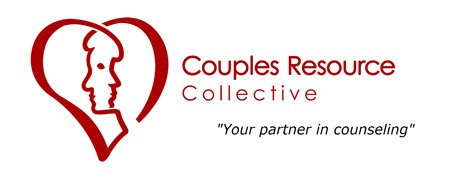Couples Counseling
What is couples counseling?
Couples counseling is a form of therapy in which a therapist works with couples on whatever issues or concerns are relevant in their relationships. Couples counseling can use a variety of therapeutic modalities, which often includes elements of psychodynamic therapy, Emotionally-Focused Therapy (EFT), Gottman method therapy, Internal Family Systems (IFS) and even Narrative Therapy, among others.

Couples seek counseling for a wide variety of reasons. Sometimes couples who seek counseling are going through a particular crisis or challenge, while others might be more generally dissatisfied with some area of their relationship. You don’t need to have particularly acute problem in order to seek therapy; many couples who seek counseling are simply looking for an additional resource to strengthen their bond and make their relationship even happier.
You don’t need to be married or monogamous to seek couples counseling; this form of mental health treatment can be helpful for couples of any kind, as long as both parties are willing participants. In some cases, you may even be able to attend couples counseling alone, if you’re interested in working on a partnered relationship but your partner is unwilling to attend sessions. It’s also important to note that couples therapists will never take sides in any disputes. The therapist is there to work with both parties equally and will do their best to balance each partner’s goals and concerns.
As with any therapy, the number of sessions you have with a couples counselor can vary, but generally speaking, couples counseling tends to be shorter-term than individual counseling. Depending on your goals and challenge, you might see a counselor for only a few sessions, or you might continue for several weeks or months. The American Association of Marriage and Family Therapists reports that the average number of sessions with a marriage and family therapist is 12.
How does couples counseling work?
Couples counseling sessions often focus on the issues you’re facing as a couple, but may also involve some discussion of each of your individual histories and challenges. It is often focused on solutions and behavioral change, and a couples therapist may assign you homework to complete between sessions. Depending on your preferences and the modalities your therapist uses, couples counseling often uses techniques and activities drawn from cognitive-behavioral therapy and mindfulness therapy.
The exact focus of your treatment will depend on the particulars of your relationship and your therapist’s approach, but some common areas of exploration in couples counseling include:
- Difficulty communicating
- Financial issues
- Challenges related to sex and intimacy
- Household issues related to things like chores and day-to-day routines
- Issues with other family members, including children and parents
- Conflict resolution
- Infidelity
- Crises, such as illness, addiction, loss of a job, or death of a loved one
- Setting goals and making shared life decisions
How is a typical couples therapy session structured?
Because couples counseling does not refer to any particular therapeutic modality, sessions will vary depending on your therapist and the issues you’re looking to work on. That said, you’ll often begin with an open-ended discussion of your concerns and goals around couples counseling, both as individuals and as partners. Some therapists also recommend starting with one or more individual sessions, so that the therapist can get to know both partners as individuals and get a balanced perspective on your work as a couple. Together, you’ll work with your therapist to establish a treatment plan and shared goals in your early sessions.
After this early phase, most sessions will likely include a mixture of discussion and other activities. These activities might include role-playing, communication exercises, mindfulness practices, and conflict resolution techniques, among others. If your counselor assigns homework between sessions–and many do–then your sessions will also include a review of that homework and how it may have affected your relationship outside of sessions. Homework might include trying out new communication strategies, scheduling time to spend together, or observing your typical interaction patterns.
Some models of couples therapy are more structured. For example, Emotionally-Focused Therapy (EFT) is based largely on the counselor’s observations of the couple in the present moment, which can help pinpoint patterns that exist outside of sessions. In an EFT session, your therapist will likely observe your interactions with your partner and use these observations to recommend strategies for changing unhelpful patterns. These strategies may include changing the language you use in discussing a particular issue or trying out a new communication style at home.
Regardless of the techniques your sessions include, a good couples counselor will never take sides or use activities that pit partners against each other; the counselor is there to mediate and make sure that both partners’ concerns are heard.
What mental health conditions is couples counseling good for?
Couples counseling is generally designed to help couples resolve tensions and relationship issues, rather than treating particular mental health concerns of the partners. Partners dealing with specific individual mental health concerns should usually be in individual therapy as well. That said, couples counseling can help reduce mental health symptoms that may be related to tension in the relationship, including symptoms of anxiety, depression, or stress.
It’s also important to note that neither partner needs to have a mental health diagnosis or symptoms in order to seek couples counseling. Any couple who wants to support exploring some aspect of their relationship may benefit from sessions with a couples counselor.
How effective is couples counseling?
The available evidence indicates that counseling can be an effective treatment for couples in distress. One report states that counseling was associated with improved relationship outcomes for 70% of couples. A study from the American Association of Marriage and Family Therapists also notes that over 98% of clients of marriage and family therapists were satisfied with the quality of their treatment, while 90% said that their emotional health had improved.
What should I look for in a practitioner for couples counseling?
Couples therapy can be provided by a wide range of practitioners, including psychologists, social workers, counselors, and licensed marriage and family therapists.. Regardless of their exact certifications, all couples counselors should have advanced training and experience working specifically with couples. You might also want to look for a counselor who has experience with couples who share some aspect of your identity, such as LGBTQ+ or interracial couples.
It can also be helpful to clarify your goals together before starting couples counseling. It’s beneficial to try talking over the following questions together:
- How do we want to grow as a couple?
- Do we need to work on our conflict style?
- Could we improve the quality or frequency of our intimacy?
- Are we abusive to each other?
- Do we have shared goals, and what are our goals as a couple?
- Do we need to work on listening to and validating each other?
Once you have a clearer idea of what you want out of therapy, it can be easier to find a therapist who’s prepared to help you meet those goals. Visit our counselor page by clicking here at Couples Resource Collective to see if one of our therapists is right for you!

